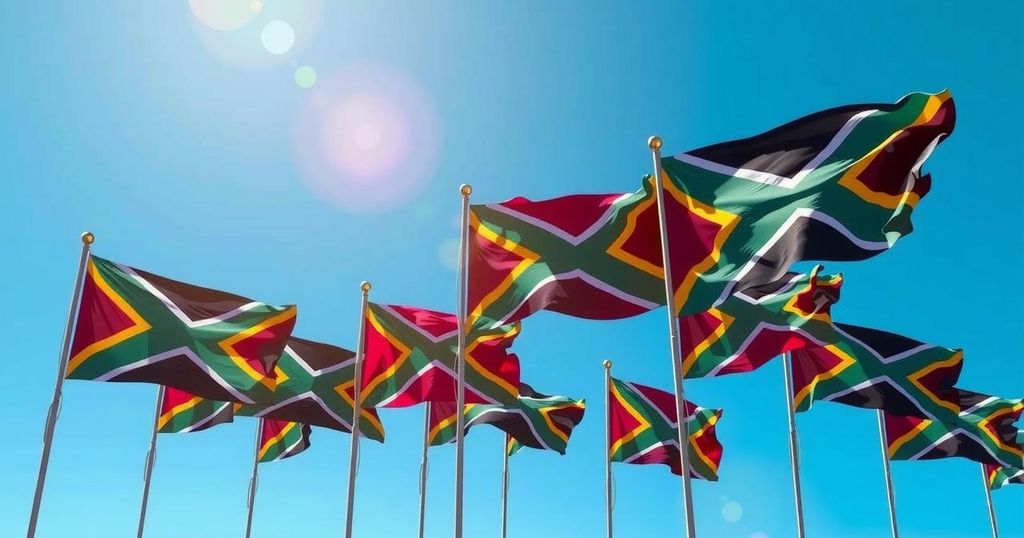Controversy Erupts Over South African Refugees: A Race-Inflected Dialogue
A group of South African Afrikaner refugees has arrived in the U.S., but their reception has prompted backlash from left-wing commentators. Critics have voiced concerns that their race is a central issue. Some organizations have even halted refugee partnerships over this situation, revealing tensions about who qualifies for asylum in America.
Recent developments surrounding the arrival of South African refugees in the United States have sparked considerable discontent among some left-leaning commentators and politicians. A group of 59 Afrikaners, resettled under an executive order by former President Trump, seems to have unleashed a torrent of criticism primarily due to their race. This reaction raises questions about the ideological consistency of those who typically champion refugee rights.
In a political landscape where Democrats generally position themselves as allies to refugees, the anger directed toward this small number—barely enough to fill a trans-Atlantic flight—strikes many as disingenuous. Critics point out that significantly larger groups of asylum seekers were allowed entry during the Biden administration. The Episcopal Church recently declared an end to its partnership with the government for refugee resettlement, citing its commitment to racial justice and effectively turning down substantial funding.
So, what is truly behind this backlash? Several figures have suggested that the primary issue is the race of the Afrikaner refugees. Former Rep. Donna Edwards of Maryland was explicit about her view that the refugees’ identity significantly influenced the response from the Left. She suggested on MSNBC that Trump’s actions are not just about policy but potentially motivated by racism. The focus on this group has been intense, particularly from commentators on outlets typically supportive of refugees.
Ashley Allison, associated with the Biden-Harris campaign, raised eyebrows when she seemingly dismissed the refugees’ plight, suggesting that they should consider returning to Germany instead of the United States. This raises discomforting questions about national identity and historical belonging for descendants of Dutch settlers in South Africa, who have been there since the mid-17th century. The notion of sending them to a distant homeland is perceived by many as a stark form of nationalism.
Even more controversially, Senator Chris Van Hollen made headlines with comments that suggested a stark dichotomy: while he argued for the rights of established refugees facing real dangers, he criticized the approval of refugee status for South Africans who, he claims, do not need it. He framed this policy as emblematic of a new global apartheid under Trump’s administration.
However, it must be pointed out that the Afrikaners have experienced violence in South Africa. Reports indicate numerous attacks where the victims were targeted based on their race, as well as explicit threats of land confiscation by the government. Elon Musk, who himself has ties to South Africa, has echoed concerns relating to the safety of these farmers, suggesting that their need for refuge is valid.
The South African government’s stance is quite telling. They have labeled claims of Afrikaner refugees as fabrications, suggesting that the refugees are fleeing not from danger but rather from the consequences of historical injustices. This rejection reflects a broader disdain for the narrative of victimization among the Afrikaners, which is tied to the legacy of colonialism and apartheid in South Africa.
Ultimately, the Left’s dismissive response towards these refugees exemplifies a troubling inconsistency in their refugee advocacy. There seems to be an underlying message that for asylum, being white may automatically disqualify one from compassion or assistance. Instead of extending a welcoming hand, they have exposed their reluctance to grant aid based on race—a revelation that reveals deeper fissures in their perceived commitment to supporting all displaced peoples.
The arrival of a small group of South African refugees in the United States has ignited a significant backlash from some left-wing figures who are now openly questioning their legitimacy based solely on race. This incident underscores an inconsistency within the broader refugee advocacy narrative and raises uncomfortable questions about inclusivity in the asylum process. As the discourse evolves, it appears that racial biases are quietly shaping who is deemed worthy of protection, reflecting broader societal tensions surrounding race and refugee rights.
Original Source: www.dailysignal.com




Post Comment